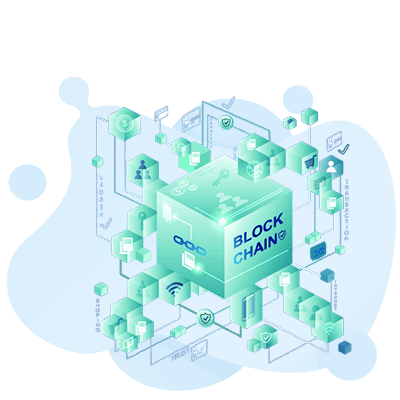CBSE (Certified Blockchain Security Expert) Test Guide

In an era defined by digital innovation, blockchain technology has emerged as a cornerstone of secure and decentralized systems. The CBSE (Certified Blockchain Security Expert) certification validates your expertise in safeguarding blockchain networks against threats, making it an essential credential for IT professionals and cybersecurity experts. This guide provides a comprehensive overview of blockchain security, how to prepare for the CBSE exam, and its importance in today’s digital landscape.
Free CBSE Practice Test Online
Key Takeaways
- Blockchain security is vital for protecting decentralized systems against threats and vulnerabilities.
- The CBSE certification validates your expertise in blockchain security principles and practices.
- Proper preparation, including understanding core topics and using study resources, is essential for passing the CBSE exam.
What is Blockchain Security?
Blockchain security encompasses the measures and protocols that protect blockchain systems from cyber threats, fraud, and vulnerabilities.
Key Elements of Blockchain Security:
- Cryptographic Algorithms: Blockchain relies on cryptographic hashing and digital signatures for data integrity.
- Decentralized Structure: No single point of failure enhances security against attacks.
- Consensus Mechanisms: Proof of Work (PoW), Proof of Stake (PoS), and other methods ensure data authenticity.
Blockchain security focuses on protecting data, transactions, and operations, ensuring the network is resilient and trustworthy.

How Does Blockchain Security Work?
Blockchain security works by integrating advanced technologies, consensus protocols, and cryptographic methods to safeguard its decentralized nature.
Core Security Features:
- Immutability: Data recorded on the blockchain cannot be altered, reducing the risk of tampering.
- Distributed Ledger: Transactions are verified by multiple nodes, preventing unauthorized changes.
- Encryption: Advanced encryption secures user identities and transaction details.
- Smart Contracts: These self-executing contracts enforce rules automatically, reducing fraud risks.
By leveraging these features, blockchain networks are resilient against cyberattacks and maintain operational integrity.
What is a Blockchain Network?
A blockchain network is a decentralized digital ledger where transactions are recorded in blocks and linked chronologically.
Components of a Blockchain Network:
- Nodes: Computers participating in the network to validate and store data.
- Blocks: Units of data containing transaction information.
- Consensus Mechanisms: Methods used to validate transactions and maintain the ledger’s accuracy.
Blockchain networks power various applications, from cryptocurrency to supply chain management, showcasing their versatility and security.
Why is Blockchain Important?
Blockchain is revolutionizing industries by providing secure, transparent, and decentralized solutions to traditional challenges.
Key Benefits of Blockchain:
- Enhanced Security: Its cryptographic and decentralized nature reduces vulnerabilities.
- Transparency: All participants have access to the same data, fostering trust.
- Efficiency: Eliminates intermediaries, speeding up transactions and reducing costs.
- Scalability: Suitable for diverse applications, from healthcare to financial services.
The importance of blockchain lies in its ability to address issues like fraud, data breaches, and inefficiency in various sectors.
What is Blockchain in Cybersecurity?
Blockchain is redefining cybersecurity by providing robust, immutable solutions to traditional security challenges.
How Blockchain Enhances Cybersecurity:
- Decentralization: Reduces the risk of single-point failures.
- Data Integrity: Ensures data authenticity through cryptographic validation.
- Identity Management: Blockchain-based systems offer secure and verifiable digital identities.
- Secure Transactions: Protects financial and operational transactions from unauthorized access.
Integrating blockchain into cybersecurity strategies enhances protection against threats like ransomware, data breaches, and phishing.
Preparing for the CBSE Exam
The CBSE certification demonstrates expertise in blockchain security principles and practices.
Key Steps for Preparation:
- Understand Core Topics: Study blockchain fundamentals, cryptography, and consensus mechanisms.
- Practice with Case Studies: Analyze real-world blockchain security scenarios.
- Take Practice Exams: Familiarize yourself with the exam format and question types.
- Use Study Resources: Leverage guides, online courses, and official materials.
Focus on mastering technical and practical aspects of blockchain security to excel in the CBSE exam.
Benefits of CBSE Certification
Becoming a Certified Blockchain Security Expert provides numerous professional advantages.
Career Advancement:
- Positions you as a blockchain security specialist.
- Opens opportunities in industries like finance, healthcare, and supply chain management.
Industry Recognition:
- Validates your skills and knowledge in blockchain security.
- Enhances credibility with employers and clients.
Future-Proofing Skills:
- Equips you with in-demand expertise for the growing blockchain industry.
Conclusion
The Certified Blockchain Security Expert (CBSE) credential is a critical step for professionals aiming to excel in blockchain security. As blockchain technology continues to evolve, this certification equips you with the expertise to secure and optimize blockchain networks effectively.
Whether you’re pursuing career advancement or aiming to enhance your cybersecurity capabilities, the CBSE certification is a valuable investment in your professional future.
FAQs
What is the CBSE certification?
The CBSE certification validates expertise in blockchain security, emphasizing the protection of blockchain systems from vulnerabilities and threats.
Who should pursue the CBSE certification?
IT professionals, cybersecurity experts, and blockchain developers aiming to specialize in blockchain security should pursue this certification.
What topics are covered in the CBSE exam?
Topics include blockchain fundamentals, cryptographic principles, consensus mechanisms, and real-world security applications.
How can I prepare for the CBSE exam?
Study blockchain security topics, practice with case studies, and utilize official guides and practice exams.
Why is blockchain important in cybersecurity?
Blockchain enhances cybersecurity by offering decentralized, immutable, and cryptographically secure solutions to traditional security challenges.
